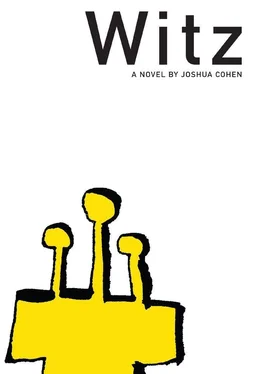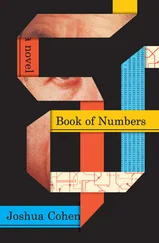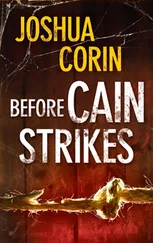Though once such suckling is over and done with, only interpretation is left — the life of the lips without nipple.
We have been taught thusly: that a knock, a rap, an application of the hand, of the knuckles, the palm, is variable with intent, that a knock must spend itself in only one of two ways, depending; and so we have two interpretations, one to each fist, united in purpose; whereas some scholars say, a knock ends when the hand breaks contact with the struck surface, other scholars hold that it’s when the sound of its striking is rendered imperceptible, when it’s said to die — physics and the acoustic aside, this is philosophy, what’s meant is the appreciation of senses. But this knock is strange; it’s as if the fist or all the world’s fists at once are metamorphosing into the door, and without any breaking, any cracking, or splinter, in a knock that’s forever a knock, a massed hand of hands exploring the surface, the lifespan of entry, though others hold that the hand of God outstretched and strongarmed only strikes quickly, then removes itself, retracts into its own power and infinite mercy, and that the sound then lives, not reverberates, that the knock sounds in a single wave throughout the structure of the house, the solo stroke transmitting itself in full to the foundations on up to the roof and quaking with light, undiminished — the entire house knocked upon, this house of total door. As a force, this came to Him, felt this through Himself, it shook loose His bowels, its contents, sending the milks and meats of His juices sloshing from sucked feet to head and back again to the toe cradled inside his mouth in tides without moon, fogging His glasses to tears to hold in His beard.
A knock, not a joke’s setup: without punchline, a knock not funny at all but the opposite. Inverse. Though it wasn’t the knock that scared Him, this He remembers, that His siblings or parents expected, they might’ve expected, yet another visitor at this latest hour: had a dinnerguest left a scarf behind, maybe, or a serving platter for the dessert who bought and brought, no, He thinks, that wouldn’t justify, another thing much more important then, maybe a weddingring taken off sinkside to wash hands without prayer, or a prosthetic limb forgotten, perhaps, propped against the wall alone (how it eats and drinks little, doesn’t take up much room), or else Misses Feigenbaum, finally back for her husband; it’s that this knock’s horror, true terror…who’d it be, had his father left yet, already for work on Monday, a weekday already? It wasn’t the knock that froze Him inside, no, it’s that He felt that Someone now expected something of Him — and so there inside Hanna, He flailed out once, kicking out her navel, to a second stomach, lesser or greater. In the end, the scholars agree: a knock is a knock is a knock, make no mistake about it, there’s no disputing — it knocked the stairwell photographs downside up, to be righted by Wanda by morning, and all that was fine, understandable — it’s the thought, though, that He’d have to answer it.
To live is to transgress, existence itself a species of violation; day passes through hours into days, into a lifetime spent in darkness under the sun that must shine always, as it has no will of its own. From the first seven to now, each day is a history, which we deny if we fail to live our lives in its observance, for its sanctification. As we go in and as we come out, as we rise up and as we lie down, carelessly, accomplished without conscience, we deny the tradition of each day — we live without a thought given to the eternal presence of the past in our present, which is already past, even though it may tarry. Other calendars live through our calendar, shine through in glimmers of the sacred, like the cloudlike moon as descried through the black of the clouds…wheels turn each other, turn through one another, bound to the heart, caged in the ribs — the soul and the body find refuge in the same nothingness, what we call mensch…
To interpret winter, it’s December, which in our generation dawns during the month known as Kislev, if only to those who might know no more. Much like the soul and body, they have nothing to do with one another, December and Kislev, save that they cleave to the same, which is nothing, each other. Wrapping, ribbons of bows, tissue, foam pellet packing — to tear at the box that is day, the present, to find inside the gift that is time. We might have mentioned, it’d been the holiday of the lights, Hanukah, each night a candle wicked down to dawn and its aureate smoke, meltings in the menorah her mother had left her, Hanna’s, Polish, it didn’t polish itself, you had to scour, replace it on its cabinet shelf, but this she’d leave to Wanda, upon the night after the last — the ninth, numbered as a plague of the opposite season — observed at the sink, its ritual of the goo and the rag.
As Kislev turns over, December remains, another notch, another tooth, a soul departed in part. After Kislev comes the month of Tevet, its first this year and in the opposite month a Friday, which is the beginning of the Sabbath, or Shabbos, the day a king of Judah was exiled from Jerusalem, along with the nobility and all of our interpreting Sages. However mournful, it merits no fast. That occurs, though, on the eighth of that month, when we go without in memory of the decree of Ptolemy of Egypt, a king, successor to Alexander of Macedonia, his order that the Law of the people, the Torah, be translated from the language of God into the language of gods, which is Greek: hoping to expose disputation and so falsehood in the Law, Ptolemy summoning the exiled Sages from eight days ago, dispersing their future into separate prisons each to a mensch and there ordering them each to translate the Law and each inspired, guided by God Who knows all languages and has all tongues in His hand, separately translating the Law entire identically, even when they, again always separately if unified in the purpose that is God that is known as survival, intentionally altered their translations to avoid offense to the king, if and when this or that passage might have been misunderstood by those lacking faith; these identical Laws being finished on the eighth of the fourth month, which is the tenth month if our year would be counted from spring, whose name of Tevet cannot itself be translated, as its meaning is unknown, or means nothing. And then there’s Shabbos, the next day, which now exhaustedly falls upon the ninth of the month of Tevet and might also have been a day of privation, of fast (if not for the fact of the Sabbath, which supersedes such), when we are so told to remember the deaths of a scribe and a prophet, specifically Ezra and Nechemiah they were, leaders of the people in their return from Babylonia’s exile, which would capture their souls. And finally, turning wheels, reversing events, chronology, causality, there’s the fast of the next day, if you’re prepared, which is the tenth, embodied in December but beyond it as well, infamously, upon which we have sworn to curse Nebuchadnezzar, Babylon’s king, and his siege of the holy Jerusalem that began on this date and lasted three years more until the walls of the city were finally breached upon the ninth day of the tenth month in the eleventh year of the reign of a king whose name it is forbidden to pronounce as it’s impossible and, anyway, manyvoweled; this siege ending, events unto events, wheels within wheels, bad breeding worse then bringing it up without a Father Who art, in the destruction of the Holy Temple — whose observance in memory of shall be as festivals upon the coming of the Messiah; which Temple whether fallen forever or still with the potential to rise we anyway rededicate year after year, with the festival of lights that illuminates the days to the pagan millennium about to arrive, with the end of the world and our water stockpiled, our flashlights and our guns and our rope, a rush on jars of honey, powdered milk.
Читать дальше












